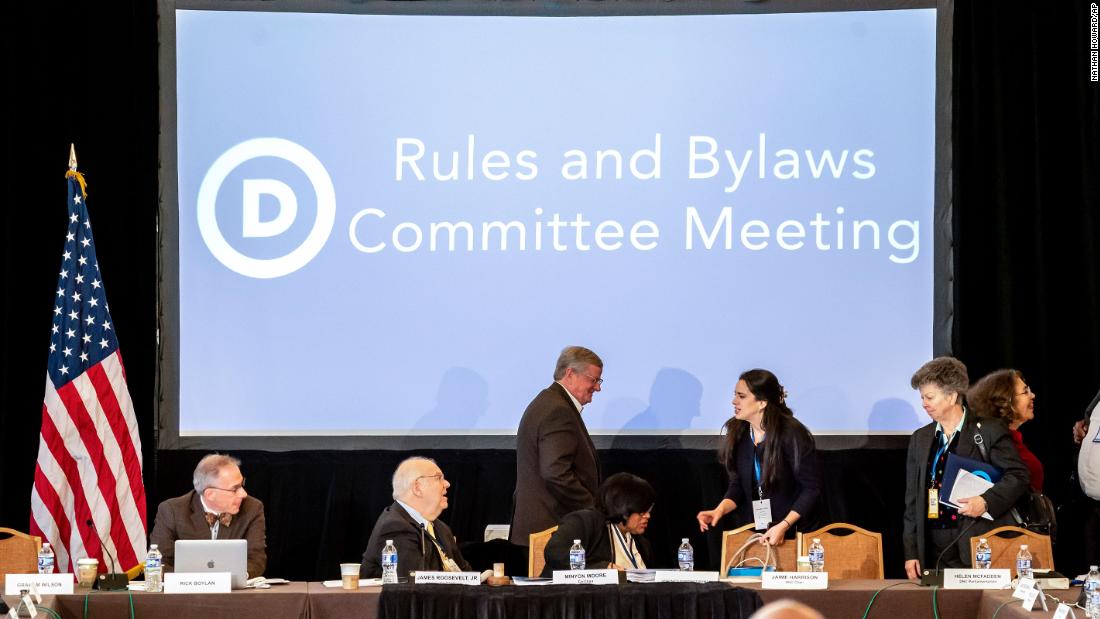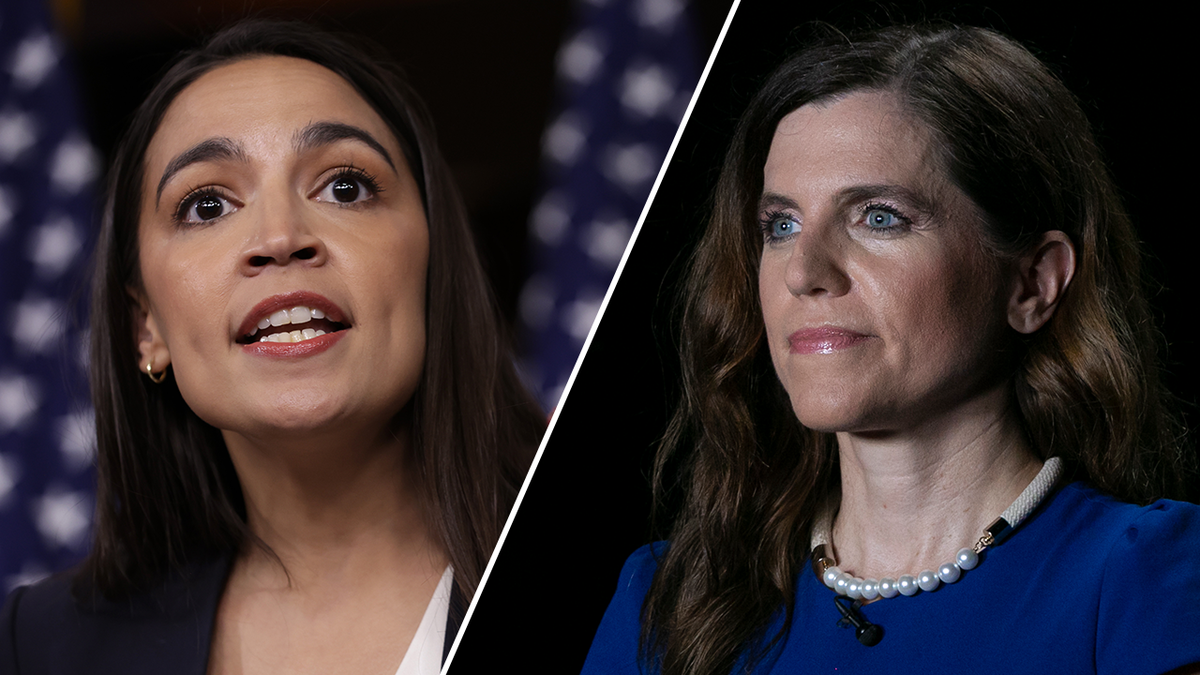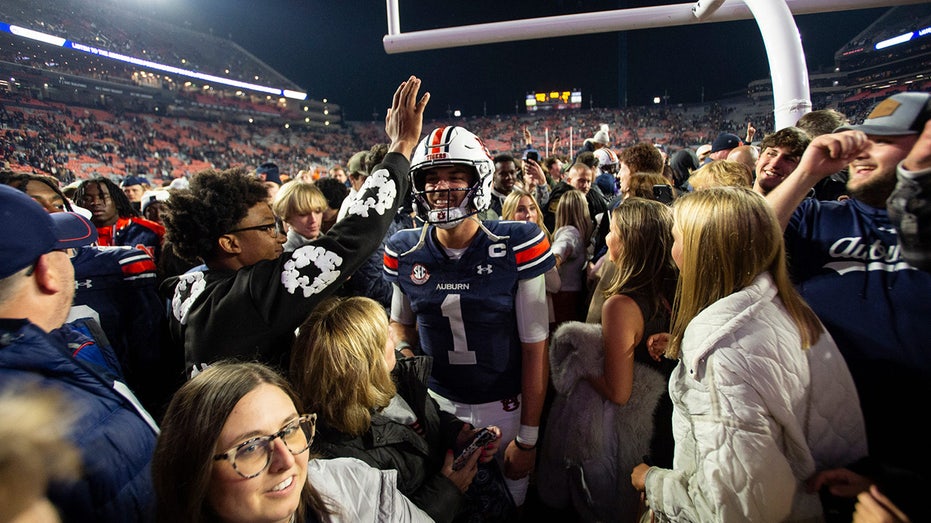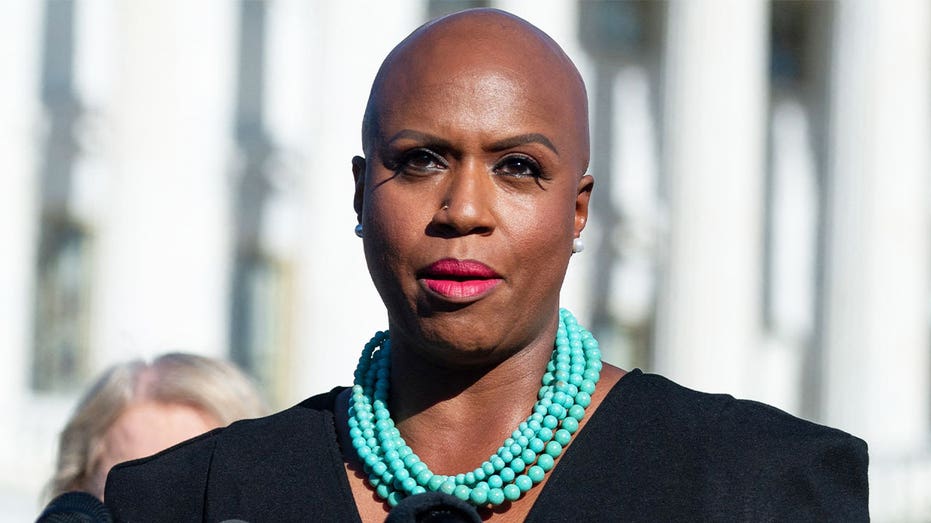- by foxnews
- 25 Nov 2024
Iowa Democrats will hold vote-by-mail contest to comply with Biden's plan to revamp 2024 calendar

The rules panel of the Democratic National Committee on Friday approved a plan from Iowa Democrats to comply with a reworked presidential nominating calendar proposed by President Joe Biden in a move that will see the state shift out of the first-in-the-nation position it has held since 1972.
The panel also took a step toward sanctioning New Hampshire Democrats over what's expected to be an early primary contest next year that won't comply with party rules.
The Iowa plan is a major step toward enacting the revamped nominating schedule the national Democratic Party adopted earlier this year, which demoted traditional early-voting states Iowa and New Hampshire, while elevating South Carolina, Nevada and Michigan.
Under the new Iowa plan, which the state party announced shortly before Friday's meeting in St. Louis, Democratic voters will have until March 5 to cast their votes for a presidential nominee in a process conducted entirely by mail.
Iowa Democrats will be able to register to receive a presidential preference card in the mail starting November 1. Those cards will start being mailed out on January 12, 2024, and the last day to request one will be February 19. The state party will release results on March 5, which is also the last day that voters can mail their cards.
Iowa Democrats will also hold in-person caucuses on January 15, the same day that Iowa Republicans will gather, but those meetings only be used to conduct party business, not to vote for president.
The new Democratic primary calendar took away Iowa's special status as an early state, despite a state law which requires the caucuses to be held before any other contest.
In response, the state party adopted a rough outline of the plan they fleshed out Friday, with early caucuses separate from a presidential preference vote conducted by mail.
However, that initial plan didn't include dates for the mail process, as the state party wanted to remain "flexible" in case of other calendar developments.
Without that information, the DNC Rules and Bylaws Committee declined to approve the proposal at its June meeting, and national party staff said that for the plan to comply with DNC rules, the vote-by-mail period had to end on or after Super Tuesday, or March 5 (the date at which every state is allowed to start holding Democratic contests).
In a letter to the Rules Committee, Iowa Democratic Party Chair Rita Hart wrote that the state party had created the new schedule "after negotiations with DNC Staff."
"We believe this delegate selection plan is a compromise and meets the requirements set forth by this committee, complies with Iowa law, and most importantly sets Iowa Democrats up to win in 2024," Hart wrote.
Hart also wrote that she'd received "repeated reassurance" from party officials that the calendar discussion would be reopened ahead of 2028 and she expects Iowa "to compete strongly for a significant voice in the selection of the Democratic nominee as we have for years."
"As a resident of the small town of Wheatland, Iowa, it is vital small rural states in the heart of the Midwest have a voice in this process. Democrats need our diversifying rural communities to ensure future electoral victories," Hart said in her letter.
Scott Brennan, a member of the rules panel from Iowa, said Friday that he'd told his colleagues that his state still intends to go first on the 2028 calendar.
"We're here to support the president in 2024, and by releasing results on March 5, that's what we're doing," Brennan told reporters on a press call. "But all bets are off for 2028."
The focus will now shift to New Hampshire Secretary of State David Scanlan, who is responsible for setting the date of his state's presidential primary. Under state law, the date must be at least a week before any "similar election."
Scanlan, a Republican, has said that the use of mail ballots in Iowa would trigger his state's law, but an Iowa mail process that doesn't end until March might not be much different from other situations in which states with later primary dates have sent out mail ballots before New Hampshire primary voters head to the polls. Those arrangements haven't caused New Hampshire to move its primary date.
Hart told reporters Friday that while she was aware of New Hampshire's concerns, they weren't her focus.
"I'm concerned with what's best for Iowa and what's best for Iowa Democrats, what's best for democracy," she said. "So that's what we're focused on. That's what we'll continue to focus on."
Scanlan said in a statement Friday that he was not ready to set his state's primary date but called the announcement by Iowa Democrats "positive in terms of preserving the traditional positions of the Iowa Caucuses and the New Hampshire Presidential Primary."
Under the new Democratic calendar, the Granite State is only allowed to hold an early primary on February 6, 2024, the same day as Nevada and shortly after South Carolina holds its primary on February 3.
Without a date that complies with those rules, New Hampshire Democrats' plan was found Friday to be in noncompliance by the DNC rules panel, meaning the state has 30 days to return with a proposal that follows the rules.
Scanlan has already said that his state will not be in compliance with the DNC calendar. That could cost New Hampshire Democrats party delegates to the national convention next summer.
It would also be a violation of national party rules for Biden to campaign in such an early contest in New Hampshire or to even have his name on the ballot, although voters could write him in.
New Hampshire Democratic Party Chair Raymond Buckley acknowledged during the meeting in St. Louis that Biden's name likely wouldn't be on the ballot in his state's primary, but he said party leaders would be mounting a write-in effort on the president's behalf.
"We don't know who will be filing on the ballot," Buckley said. "As you know, New Hampshire has a history of having upwards of 50 or 60 names on the ballot of all sorts of very interesting characters. What we're determined is to not allow any of those people to claim that they've won the New Hampshire primary."
Ultimately, the calendar changes are unlikely to have much impact on the outcome of the 2024 nominating process, as Biden doesn't face a serious primary challenger. However, the moves do set the stage for a higher-profile fight over the Democratic schedule ahead of 2028.
Josh Putnam, a political scientist who tracks the presidential primary process, said Iowa's plan could potentially help them regain an early position on the 2028 Democratic calendar.
"Iowa Democrats sacrificed their traditional position atop the 2024 primary calendar so that they can make a better case to be included in the early window on the 2028 calendar and beyond. That is a contrast with what Democrats in New Hampshire have done," Putnam posted Friday on X, the platform formerly known as Twitter.
"There are no guarantees that either Iowa or New Hampshire makes the early window for the 2028 calendar, but Iowa will have a much stronger argument in 2026 for inclusion in 2028. They have worked with the DNC and have been cooperative," Putnam said.
While a few other states may still shift their 2024 primary dates, the rest of the Democratic calendar is largely set.
After Nevada, Michigan will hold its Democratic primary on February 27, and then the primary season will begin in earnest with Super Tuesday on March 5.
This story and headline have been updated.
CNN's Alison Main and Molly Gahagen contributed to this report.
- by foxnews
- descember 09, 2016
'Quiet travel' is having a moment; here are top US spots where you can embrace the trend
Here are 10 destinations for "quiet travel" in the U.S. to check out if you're ready to unplug and unwind on your next vacation. From Maine to Florida, Oregon and more, see the list.
read more


